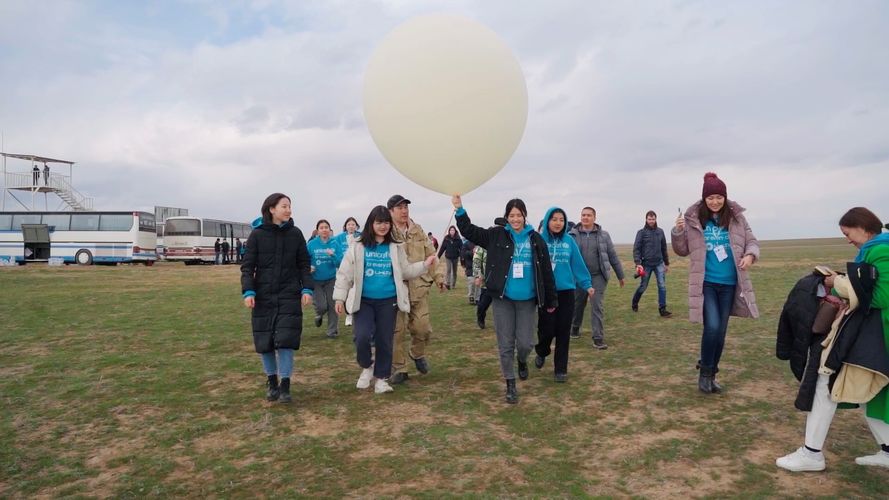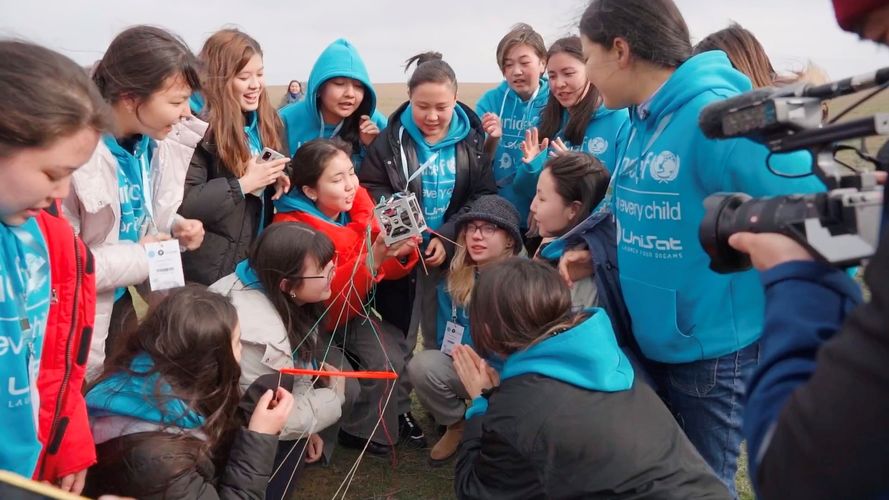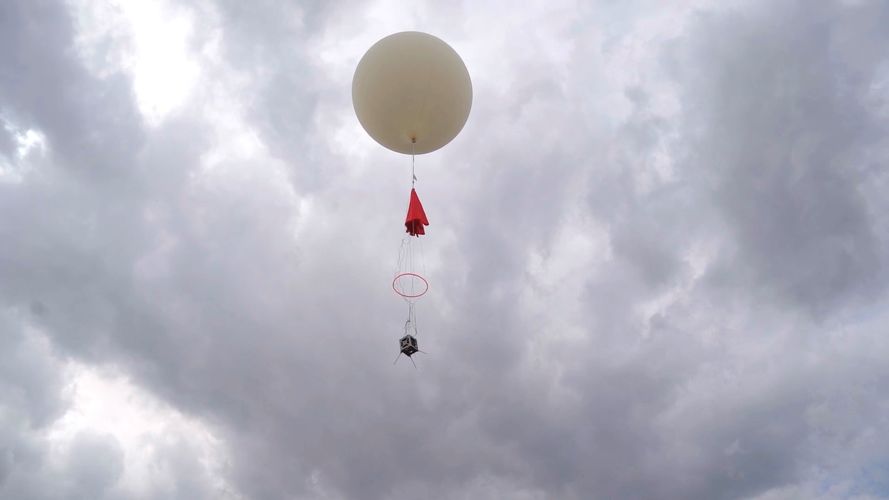|
Girls from Kazakhstan, Kyrgyzstan and Uzbekistan have launched nanosatellites to analyse air pollution, as reported by the UNICEF Office in Kyrgyzstan. According to the organisation, three nanosatellites were created by participants of the UniSat educational program, within a joint project between UNICEF and the Al-Farabi Kazakh National University. The organisation further reported that - "nanosatellites, which belong to the class of small spacecraft, weigh up to 10 kilograms and are equipped with several cameras, one of which is capable of capturing elliptical images of the Earth with 4K resolution. During launch, UniSats allow you to capture stunning high-resolution images of the Earth and space. Sensors collect data on radiation, pressure, gravity, light and gas composition, and large amounts of data, video and images are sent back to Earth for analysis." "The launch of the nanosatellites is symbolic. It demonstrates the limitless potential of girls and women in Central Asia. Their ability to push the boundaries of science and technology. We are extremely pleased that this year we were able to include 2,000 female participants from the three countries in the program and inspire them to continue their education and careers in science, technology, engineering and mathematics. We believe that the results of the UniSAT program will bring a cosmic change in society." The nanosatellites were created by the girls as part of a 10-day marathon. The project participants mastered the design, engineering, programming, and assembly of the spacecraft. They were able to visit the centre for space technology and remote sensing, and the theoretical knowledge they gained was immediately put in practice during the classes. Under the mentors’ guidance, they designed nanosatellite bodies using 3D modelling and printed them on a 3D printer. The girls also programmed UniSat subsystems and tested them in the lab before launch. "In Kyrgyzstan, only one in three girls aged 15-19 is computer literate, and more than 80 percent of girls choose social and human sciences. But how much do these choices reflect girls’ professional interests and aspirations? That’s why UNICEF launched Girls in Science in 2020 to help them expand their horizons, overcome gender stereotypes, and make their career choices. Every year, more than 10,000 girls join the initiative and more girls gain confidence in developing a career in science. In this context, the nanosatellite launch event is not only the result of two years of work for us, but also an inspiration for the potential of girls and our youth." The UniSat program is supported by the Dubai Cares International Education Foundation, Clé de Peau Beauté brand, and philanthropist Nazanin Alakija Article originally published (28/03/2022) in Russian on the website 24.Kg - LINK
Our thanks to Myrza Karimov (University of Central Asia) for supplying InnovaSpace with the version translated into English Comments are closed.
|
Welcometo the InnovaSpace Knowledge Station Categories
All
|
InnovaSpace Ltd - Registered in England & Wales - No. 11323249
UK Office: 88 Tideslea Path, London, SE280LZ
Privacy Policy I Terms & Conditions
© 2024 InnovaSpace, All Rights Reserved
UK Office: 88 Tideslea Path, London, SE280LZ
Privacy Policy I Terms & Conditions
© 2024 InnovaSpace, All Rights Reserved



 RSS Feed
RSS Feed